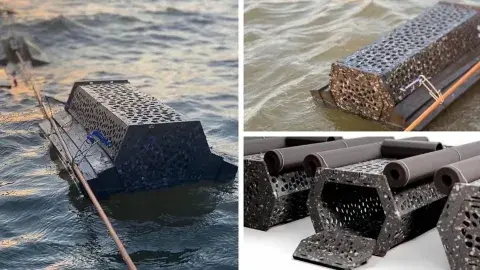The report by Tec de Monterrey’s FAIR Center, Zona SHERO, and Pro Mujer points out that 73% of women entrepreneurs in Latin America have not had access to financing due to gender issues, stereotypes, and other variables.
“Launching a pink credit card isn’t enough to adequately serve this sector. It’s essential to understand it, setting aside stereotypes and labels,” said Felipe Pérez, Director of the FAIR Center.
“It’s important that financial institutions work on collaborative schemes and design financial services according to the needs of these entrepreneurs, making them more flexible, personalized, and tailored to their businesses,” he added.
During the presentation, several proposals for solutions to this problem were offered.

Urgent need for technology to bridge the gap
Those involved in this study consider that the use of technology by financial institutions is fundamental to address this problem.
“Big Data offers a lot of possibilities by identifying flows, production capacity, and payment periods and frequency, transforming that data into knowledge for decision making,” Pérez said.
He also recommended promoting the use of digital banking and making more use of electronic devices so that women can have more access to these services. This is a very important variable to improve financial inclusion.
“For example, 95% of adults in Mexico have a cellphone, but according to World Bank data, only one third of them have bank accounts on their devices. It’s a huge gap,” he said.
Offering financial education and support networks
In addition to capital, the research revealed that a large percentage of women entrepreneurs in Latin America seek advice to run their businesses optimally, so they want financial education and to create support networks with other women.
“We saw that it’s very important for women entrepreneurs to create community, network, and receive advice and feedback about their businesses.
“Those of us who conducted this research have the task of working with different stakeholders in society to make this knowledge available to them in their endeavors,” explained the director of the FAIR Center.
“The solutions we’re going to work on based on the results of the project include the creation of support networks, financial education programs, consultancies, special entrepreneurship spaces for women, and empowerment courses.”

Report on women entrepreneurs presented
The research project “Missing Middle Female Entrepreneurs and their financing options” was carried out in Mexico, Argentina, Brazil, Bolivia, Peru, and Colombia through interviews and surveys of 290 women.
This study showed that most of them have had to use their savings, personal accounts, or equity due to the lack of credit options.
These female entrepreneurs are known as the Missing Middle segment since their businesses are not small enough to obtain micro-support or large enough to receive investment funds, so they suffer from a deficit in the supply of credit.
This is despite the fact that 67 percent of job opportunities in Latin America are generated by small and medium-sized enterprises led by women.
Pérez added that institutions should provide services for this sector in a more organic way, setting aside prejudices such as risk aversion, as the sector has great potential for impacting the region.
“Addressing this sector isn’t just a social justice or gender equality issue, which in itself is important, but by supporting women who generate jobs and support families, it’s also an economic issue that benefits everyone,” Pérez said.
“By supporting women who generate jobs and support families, it’s an economic issue that benefits everyone.”
About the FAIR Center
The FAIR Center for Financial Access, Inclusion, and Research actively contributes to the development of an inclusive financial ecosystem in Mexico and Latin America, promoting “financial fair play” for the benefit of the most vulnerable people in society.
FAIR promotes the development of a fairer and more inclusive financial system that contributes to improving the living conditions of the most vulnerable people in Mexico and Latin America.
Other organizations involved in this project are:
- Zona SHERO
This is a program that began with the INCmty community of female entrepreneurs, supporting Tecnológico de Monterrey’s nine UN WOMEN HeForShe commitments.
It forms part of the Eugenio Garza Lagüera Institute of Entrepreneurship programs, whose objective is to help women entrepreneurs obtain, advance, and remain with their companies in the global entrepreneurial ecosystem.
- Pro Mujer
This organization has a digital platform where women can find online educational content, apply for financing, create new sales channels, and connect with other women entrepreneurs and businesswomen.
These tools enable them to acquire digital, leadership, management, personal development, financial, and sales skills.
ALSO READ:






